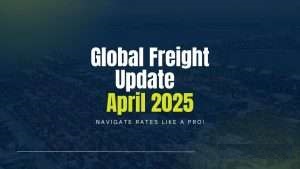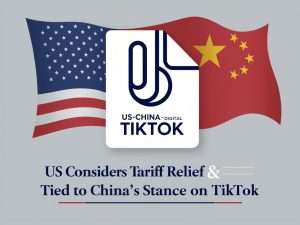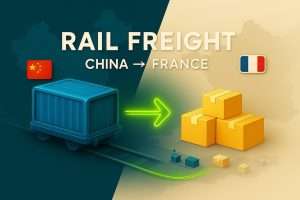Choosing the right Incoterm is paramount in international trade. It influences who pays for freight, who bears the risk, and how duties and taxes are handled. DDU (Delivered Duty Unpaid) and DDP (Delivered Duty Paid) both involve delivering goods to the buyer’s country, yet they differ substantially in terms of customs responsibility and final cost. Understanding these differences will help you negotiate better deals, manage risks effectively, and streamline your supply chain.
Note on Incoterms Terminology
Although DDU was officially replaced by DAP (Delivered At Place) in Incoterms 2010 (and remains DAP in Incoterms 2020), many businesses still use the term DDU in practice. DDP remains an official Incoterm. The principles explained here for DDU (Delivered Duty Unpaid) are still widely recognized in commerce but, depending on your specific contracts, you might see DAP used instead of DDU in formal documents. Regardless, the core idea remains: the buyer pays duties and taxes in a DDU/DAP scenario, whereas the seller pays them in a DDP scenario.
What is DDU (Delivered Duty Unpaid)?
DDU (unofficial in the latest Incoterms but still commonly referenced) specifies that the seller is responsible for delivering goods to a named location in the buyer’s country, but does not cover the import duties, taxes, or customs clearance fees in that destination.
- The seller handles export formalities in their own country and arranges the main transport up to the buyer’s location or another agreed-upon point.
- The buyer arranges import clearance, pays any applicable duties, taxes (e.g., VAT, GST), and any local charges needed for final delivery.
- If complications arise at customs—such as additional documentation requests or unexpected fees—these become the buyer’s responsibility to resolve.
Benefits of DDU:
- Potentially lower purchase price because the seller does not include duties or import taxes in their quote.
- Allows experienced buyers with local knowledge to handle their own customs process and potentially minimize duties through expert negotiation or local tariff classification.
Drawbacks of DDU:
- Possible administrative burden for buyers who may be unfamiliar with destination customs regulations.
- Unpredictable final costs if duties or taxes end up being higher than expected.
What is DDP (Delivered Duty Paid)?
DDP is an official Incoterm where the seller takes on the majority of responsibilities—including paying import duties, taxes, and clearing customs in the buyer’s country.
- The seller covers all costs from export clearance in the origin country to import clearance and any duties/taxes in the destination country.
- The buyer simply receives the goods without facing local customs complexities or bills for import charges upon arrival.
- Because the seller shoulders significant risk and cost, DDP pricing can be considerably higher than DDU or other Incoterms.
Benefits of DDP:
- Simpler process for the buyer, who avoids customs formalities and import fee calculations.
- Offers a fixed, all-inclusive cost—excellent for budgeting and cash flow planning.
Drawbacks of DDP:
- Higher overall cost to the buyer since the seller factors in all possible taxes, duties, and risk coverage.
- Sellers might be reluctant to agree to DDP, especially for high-tariff destinations or if they lack experience with local regulations.
DDU vs DDP: Comparison Table
Below is a condensed overview comparing the key responsibilities under both Incoterms:
| Responsibility | DDU (Delivered Duty Unpaid) | DDP (Delivered Duty Paid) |
|---|---|---|
| Official Incoterm Status | Replaced by DAP in Incoterms, still used informally | Official Incoterm (valid in Incoterms 2020) |
| Export Customs Clearance | Seller | Seller |
| Main Transport Costs | Seller | Seller |
| Import Customs Clearance | Buyer | Seller |
| Import Duties & Taxes | Buyer | Seller |
| Risk Transfer | Generally transfers at named destination but before import clearance is done | Transfers after the goods clear customs and arrive at the buyer’s site |
| Final Delivery | Seller up to the destination; buyer must pay customs fees to receive goods | Seller delivers goods fully cleared to buyer’s premises (or agreed location) |
| Cost Visibility | Lower invoice, but additional local fees | High invoice, but near-zero surprises |
Detailed Considerations
1. Local Customs Expertise
DDU: The buyer must understand and comply with local import regulations, classification codes, and duty rates. This is advantageous if you have an in-house customs team or an experienced customs broker. DDP: The seller takes on this role. If you’re new to importing or shipping to a country with complicated regulations, DDP removes a major headache.
2. Financial Risk & Budgeting
DDU: You might snag a lower product price, but there’s risk if the actual duties and taxes exceed your estimates. Any misclassification or misunderstanding of the rates can lead to unexpected bills. DDP: You pay more upfront, but you’re buying peace of mind. The seller covers uncertain or fluctuating import charges, allowing you to plan your finances more accurately.
3. Relationship With Seller
DDU: Many sellers are comfortable quoting DDU-like terms because they don’t have to navigate another country’s customs. However, you’ll need a good relationship to ensure the correct documentation (commercial invoice, packing list, etc.) is provided for your local clearance. DDP: Sellers offering DDP usually have either a solid global network or a strong third-party logistics partner. Ensure they genuinely understand your country’s import requirements to avoid delays or added fees.
4. Potential Legal and Tax Implications
DDU: When you clear goods locally, you must ensure you comply with all local tax regulations. If something goes wrong (e.g., underpayment of duty), you’re the one facing penalties. DDP: The seller is generally responsible for compliance issues. Yet you should confirm that they have the proper documentation and legal authority to act as importer of record (depending on your country’s regulations).
Real-life Scenarios: Choosing DDU or DDP
Scenario A: Experienced Importer with Multiple Shipments
You run a business that frequently imports from various suppliers worldwide, and you’ve built a strong relationship with a local customs broker. DDU might be the better choice. You can leverage your broker’s expertise to potentially reduce import costs through accurate tariff codes and consolidated clearances. Plus, you avoid paying any premium to the seller for handling duties.
Scenario B: New Startup Expanding into Global Sourcing
If you’re a newcomer to international trade or you’re sourcing from a country with complicated regulations, DDP could be a lifesaver. The seller manages the clearance process and ensures the goods arrive at your door seamlessly, letting you focus on your core business rather than customs forms and unexpected invoices.
Scenario C: Dealing with Unpredictable Tariffs
Certain regions impose volatile duties or face frequent changes in trade policy. Under DDU, you, the buyer, risk being blindsided by sudden tariff hikes. Under DDP, the seller takes that risk—but they might charge extra to protect themselves from these unknowns, so weigh your options carefully.
Common Pitfalls & Mistakes
1. Misunderstanding the Named Destination Under DDU
Some buyers assume “Delivered Duty Unpaid” means the seller will store or deliver goods inside the country without complications. However, DDU generally stops short of customs clearance. If the buyer doesn’t pay import fees promptly, the shipment could be held, incurring demurrage or storage costs.
2. Sellers Overpricing DDP
DDP shipments can be convenient, but verify that the seller’s quoted price is fair. Some may inflate costs to cover worst-case scenarios. Request a breakdown or compare quotes to ensure you aren’t overpaying.
3. Document Errors or Omissions
If you’re using DDU/DAP terms, you must ensure the seller provides accurate documentation for customs clearance. Any error in the commercial invoice or packing list can cause clearance delays or additional fees. Under DDP, if the seller fails to provide correct documents, they risk fines, but you risk late shipments—so communication is critical.
4. Liability Disputes
Clarify exactly when risk and liability transfer. While DDU and DDP have general guidelines, your contract should detail each party’s obligations to avoid surprises if something goes wrong during transit or at the border.
FAQ: Straightforward Answers
Is DDU cheaper than DDP?
Generally, DDU appears cheaper because the seller doesn't include import taxes or customs fees in their quote. However, you’ll need to pay those charges upon arrival, which can be unpredictable if you haven’t researched local tariffs.
Who handles customs clearance under DDU and DDP?
Under DDU, the buyer is in charge of import clearance and must pay duties. Under DDP, the seller completes import customs, pays the duties, and delivers goods fully cleared.
Is DDP always better for new importers?
DDP is typically recommended for newcomers because it shifts most responsibilities to the seller. You avoid the complexities of local customs procedures, though you may pay more upfront.
Can the seller refuse DDP terms?
Yes. If the destination country has high or complex duties, sellers might be hesitant to assume the financial risk or may significantly increase their quote for DDP coverage.
When should I opt for DDU?
Choose DDU if you have strong local customs knowledge, work with a trusted broker, or regularly import to leverage your own lower-cost clearing processes. It can save money if managed well.
What if DDU shipments get stuck at customs?
Under DDU, the buyer must resolve clearance issues, pay any relevant taxes or duties, and provide missing documents. Delays might incur extra port or storage fees, so always stay prepared.












